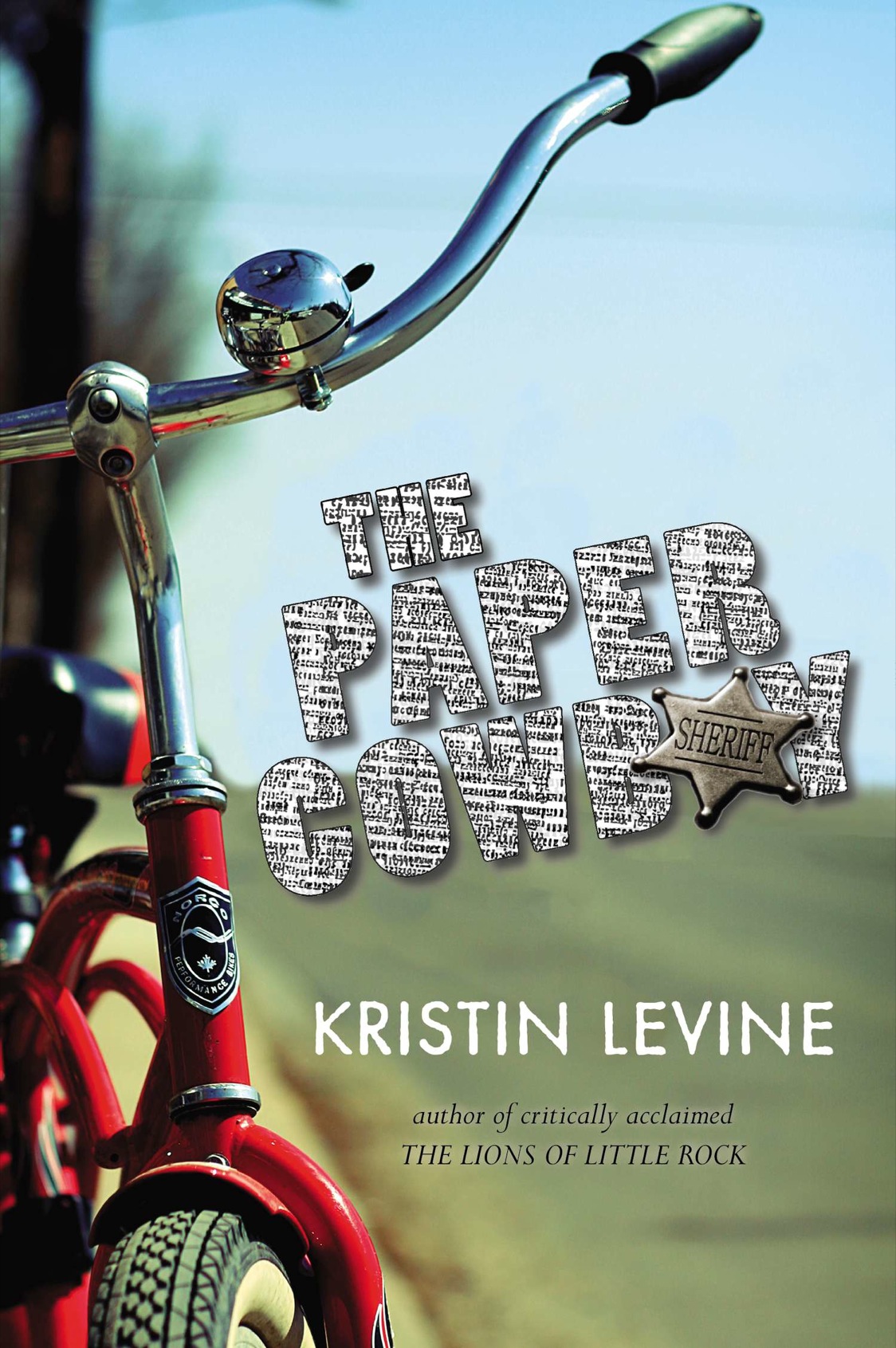
The Paper Cowboy
فرمت کتاب
ebook
تاریخ انتشار
2014
Lexile Score
600
Reading Level
2-3
ATOS
4.1
Interest Level
4-8(MG)
نویسنده
Kristin Levineشابک
9780698171749
کتاب های مرتبط
- اطلاعات
- نقد و بررسی
- دیدگاه کاربران
نقد و بررسی

Starred review from October 13, 2014
Inspired by her father's childhood, Levine (The Lions of Little Rock) explores the charged emotions of the McCarthy era in a hard-hitting story set in suburban Chicago. "Cowboys have scars. Bad guys have scars. Sisters aren't supposed to have scars," thinks 12-year-old Tommy, who feels guilty after his older sister, Mary Lou, is severely burned while doing his chores. Tommy's mother, already volatile, becomes even more so, verbally and physically abusing Tommy. Tommy's own anger builds, and he hurts others in turn. He steals from the general store and, when reprimanded, plants a found copy of The Daily Worker at the store, putting its owner in jeopardy. Tommy and his friends also bully the storeowner's overweight son, "Little Skinny," who has burn scars and a dying mother. Levine creates a believably frustrated and overwhelmed protagonist in Tommy, who is goodhearted at his core, but struggles mightily to do the right thing as tragedies and setbacks rush at him. It's a thoughtful story about understanding and compassion, distinguished by complex characters and a supportive, tight-knit community. Ages 10âup. Agent: Kathryn Green, Kathryn Green Literary Agency.

Starred review from August 15, 2014
A family crisis pushes a 12-year-old wannabe cowboy living outside Chicago in 1953 to resort to bullying and damaging pranks. Since his baby sister's birth, Tommy's normally moody mother's been like a "sky full of dark clouds." When his older sister's seriously burned, Tommy's left to cope with her daily newspaper route, his increasingly abusive mother, his overwhelmed father and his younger sisters. Tommy reacts by bullying classmates, especially a shy, overweight new boy at school named Sam. When he's caught stealing from Sam's father's store, Tommy retaliates by planting a copy of a communist newspaper found during a community paper drive in the store. After the owner's accused of being a communist and the store's boycotted, Tommy realizes he's acting like an outlaw instead of a cowboy, and he tries to find the real communist in the neighborhood, leading to surprising discoveries and the help his family desperately needs. Speaking in the first person, Tommy reveals himself as a good-hearted, responsible kid who's temporarily lost his moral compass. Effective use of cowboy imagery allows Tommy to step up like his hero, Gary Cooper in High Noon, and do the right thing. Period detail and historical references effectively capture the anti-communist paranoia of the McCarthy era. A winningly authentic, realistic and heartwarming family drama. (author's note, photos) (Historical fiction. 10-13)
COPYRIGHT(2014) Kirkus Reviews, ALL RIGHTS RESERVED.

November 1, 2014
Gr 5 Up-Twelve-year-old Tommy struggles with a multitude of problems as he grows up in the small working class, immigrant community of Downer's Grove, Illinois during the early 1950s. His mother, who suffers from debilitating mental illness frequently lashes out in fits of unpredictable violence that affect the entire family, including his father and two younger sisters. When his beloved older sister is severely burned in an accident that he blames on himself, he takes over her early morning paper route, meeting neighbors and encountering challenges along the way. Despite his valiant efforts to do right and "be like a cowboy," Tommy finds himself acting more like an outlaw, stealing from a local shop and bullying other boys, especially a new-to-town, scar-faced boy he calls "Little Skinny." When Tommy plants a Communist newspaper in Little Skinny's dad's shop, he realizes that his latest prank may have gone too far when it almost puts the shop out of business. As he learns more about the lives of those with whom he interacts, he feels remorse and tries to set things straight. Doing so requires telling the truth, finding surprising answers and nobly asking others for much needed help. Levine deftly captures a time period filled with an overarching paranoia and small-town life filled with tensions on many levels. The story itself is faintly reminiscent of Jack Gantos' Dead End in Norvelt (Farrar, 2011), but without the humorous relief. Scenes of violent beatings, emotional hospital visits, and other family and social drama make this historical novel almost too realistic at times. Give it to readers who want to learn about the effects of bullying or surviving life's tough situations.-Madeline J. Bryant, Los Angeles Public Library
Copyright 2014 School Library Journal, LLC Used with permission.

























دیدگاه کاربران